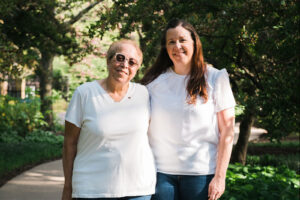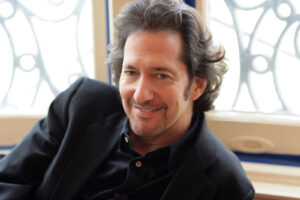I learned recently that in the Tamil language, there are more than 50 words for “love.” What a gift to Tamil speakers that a feeling as deep and multifaceted as love would have a language that honors its nuances.
Reflecting on the English words for feelings, I realized we are extremely limited in honoring the sophistication of our emotions through our language. Our limited range only gives us a narrow filter for which to describe and translate the complexity of our life experiences to ourselves and others. It is like going to a new country, learning only a few words of the language and attempting to explain your whole life to someone from that country using only those few words. You are left with a void and forced to use simple generalizations to convey the depth of your life.
This past month, my young daughter and I moved to a new home. Moving comes with its own whirlwind of emotions. Combine that with the reality of our pandemic, homeschooling and working full time and one may have to delay emotions to keep moving. This is easier said than done.
A few nights after our move, my daughter turned to me as she was beginning to fall asleep and started to cry. “Mom, I am sad and I don’t know why. Because I am really not sad. I am really happy.” I told her that she only knew the word “sad” to describe what she was feeling, but in truth, she wasn’t sad. She was finally in a safe space to let her feelings run free. She could emotionally process all of the events that had happened at once.
Feelings have their own timeline. They are not logical, linear experiences. With only a limited range of words to describe our feelings, we can easily mislabel what we are feeling and use emotional definitions by someone else. If we only reflect through a narrow lens, we miss the spectrum of what we can truly receive and learn from our complex feelings—a deeper understanding of ourselves.
Internationally, we are moving through uncharted emotional territory—we face highs and lows and openings and closings of emotions like never before. We are still trying to filter them through the small tunnel of a few words to describe our feelings. But if we can begin to step out of pre-defined and outdated definitions of emotional experiences, we can create a unique vocabulary that serves our evolution.
My daughter now recognizes that when she feels emotional heaviness after a major transition in life, she knows what her body is trying to tell her. She is learning her own emotional vocabulary. She will later listen to what her body wants when she feels these feelings, whether it be more rest, water, a good night’s sleep or a salt bath. She will be able to support her body as her emotions guide her to what she needs. It is a beautiful dance.
Once we embark on creating our own emotional vocabulary, we can chart an emotional course for our feelings. Oftentimes, these emotions propel us toward new beginnings. I call these “exit emotions.” This heaviness can lead us toward new chapters while lifting the layers of our previous selves.
How do we create our own emotional navigation system? Begin where you are. Notice how you feel now. Allow yourself some silence, removing external noises. Move into a meditative state if you can. Ask yourself about yourself. How do you feel right now? Witness the way you feel from a detached perspective. Don’t swim in the sea of your emotions.
Get a piece of paper and a pen and write down the answers you receive without adding logic to them. Allow the answers to flow without judgement.
Think of recent events that brought you to this moment. Were there any experiences that deregulated you? Is there something or someone who has affected your life? How is your life right now? Do you feel constrained or free? These questions allow you to witness your unique self and respond to your life. You can also begin to recognize when emotions are ready to be processed. These feelings are looking for permission to move on. Keep a journal of events and pair them with feelings to build your emotional vocabulary. In viewing our emotions in this light, we honor them, honor ourselves and empower others to do the same.







